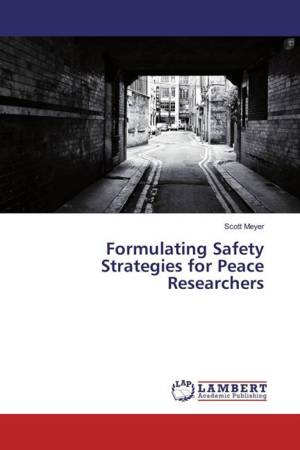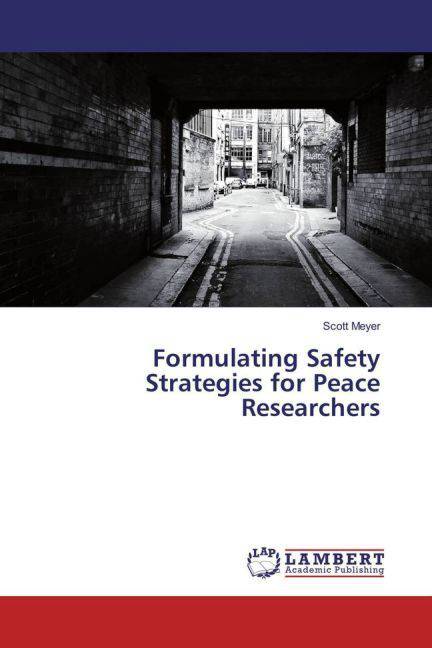
Je cadeautjes zeker op tijd in huis hebben voor de feestdagen? Kom langs in onze winkels en vind het perfecte geschenk!
- Afhalen na 1 uur in een winkel met voorraad
- Gratis thuislevering in België vanaf € 30
- Ruim aanbod met 7 miljoen producten
Je cadeautjes zeker op tijd in huis hebben voor de feestdagen? Kom langs in onze winkels en vind het perfecte geschenk!
- Afhalen na 1 uur in een winkel met voorraad
- Gratis thuislevering in België vanaf € 30
- Ruim aanbod met 7 miljoen producten
Zoeken
€ 49,45
+ 98 punten
Omschrijving
Research in the social sciences, and specifically peace studies, often utilizes fieldwork as a method to collect data. During this process, researchers are exposed to a variety of safety risks that they are often unprepared to deal with. Researchers and their sending institutions should do a better job of managing risks in the field, specifically by creating decision-making strategies for researchers. These strategies should be informed by both substantive knowledge as well as experiential and emotional knowledge from other researchers who have conducted fieldwork. This work highlights my own research experience and the dangers I encountered. By showing the typical fieldwork process and the minimal focus on managing risk, it is clear that safety and personal experience are essential parts of research and academic findings. This work gives voice to other researchers who have experienced incidents in the field and opens a discussion on the best ways to help researchers manage risks from the ambient fieldwork setting.
Specificaties
Betrokkenen
- Auteur(s):
- Uitgeverij:
Inhoud
- Aantal bladzijden:
- 112
- Taal:
- Engels
Eigenschappen
- Productcode (EAN):
- 9783330081963
- Uitvoering:
- Paperback
- Afmetingen:
- 150 mm x 220 mm

Alleen bij Standaard Boekhandel
+ 98 punten op je klantenkaart van Standaard Boekhandel
Beoordelingen
We publiceren alleen reviews die voldoen aan de voorwaarden voor reviews. Bekijk onze voorwaarden voor reviews.









